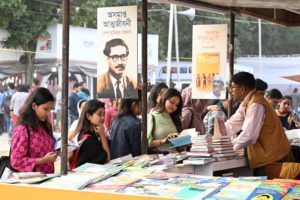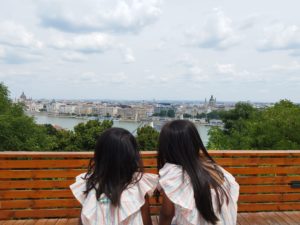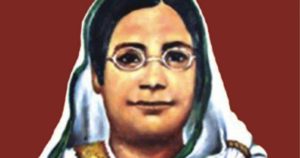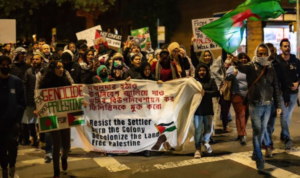Anti-Hindu Violence in Bangladesh and the Bengali Hindu Diaspora
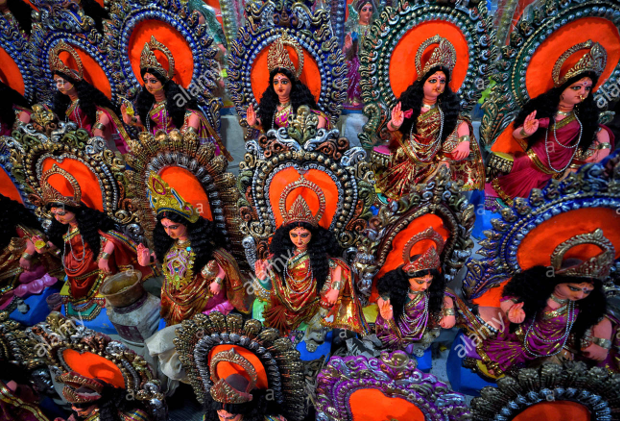
Bushra Mollick
Bangladesh is home to more than 163 million people. Since the creation of the country in 1971, many have fled their homes for better opportunities, to seek political asylum, or to flee ethnic and/or religious persecution.
When Pakistani soldiers deliberately targeted Hindu Bengalis during the Liberation War, the torch to continue the persecution of Hindus and other minority groups in Bangladesh lit on. Anti-Hindu violence and minority cleansing still plagues the country today. Bigots have desecrated idols, destroyed the fence of an ancient temple, and burned the homes of Hindu neighbors in Comilla in the past year alone. Violence against minorities in Bangladesh does not exclusively affect Hindus, as it also victimizes Buddhists, Christians, Chakmas, Ahmadiyyas, and indigenous tribes.
Hindu Bengalis are the largest minority in Bangladesh. Yet, their numbers are steadily decreasing per year. According to the Pew-Templeton Global Religious Futures Project, only 8.2% of Bangladesh’s population is Hindu, roughly 13.8 million. In 1974, approximately 13.5% of Bangladeshis were Hindu, or 9.5 million out of a population total of 71.4 million. The population of Bangladesh has more than doubled since 1974, but the ratio of the population to Hindus has decreased altogether. Some experts say that there will be no Hindus left in Bangladesh in the next 30 years.
The Affected Diaspora
Badhon Tithi immigrated to the United States in 2010. The City College of New York student recalls feelings of uncertainty and sensed “hatred” in her Dhaka community before her move to the Big Apple. “I noticed that my mom was starting to not wear her shankha, which is basically a very symbolic thing for Hindu married women,” she said. “And I kept asking her, ‘Hey, what’s going on? How come you’re not wearing it?’ And she just said, ‘Due to the political attention, we don’t really feel safe here. We don’t really feel like there’s a future here. I don’t really feel comfortable wearing this.’”
Current Prime Minister Sheikh Hasina stepped into power in 2009. However, regardless of the leading party, political violence is no stranger to Bangladeshis. “No matter what the party is, we’re always [in the] minority and we’re always going to be treated the same way,” Tithi said.
Anti-Hindu violence was a prominent part of the Liberation War, but legislation from before the war allowed the government to target Hindus post-Liberation. The East Bengal (Emergency) Requisition of Property Act of 1948 and the East Bengal Evacuees (Administration of Immovable Property) Act of 1951 allowed Pakistan to confiscate property from Hindu landowners. This law was later transitioned into the Enemy Property Act (ENP) and is now referred to as the Vested Property Act. It is most often cited as the reason why Hindus have been leaving Bangladesh in a mass exodus.
According to the “Legal” Land Appropriation, as Sanctioned by the Vested Property Act(s), sociologist Shelley Feldman writes, “Hindus would remain a marked ‘other’, a point made most evident when, on 10 April 1971, after declaring liberation on 26, March 1971, the new Bangladesh state enacted the Laws of Continuance Enforcement Order, 1971, which retained those same laws regarding enemy property promulgated during the pre-independence period.”
The ENP affected thousands of Hindu families, including Tithi’s. “My dad’s whole family shifted to India right before the [Liberation] war. And they have never chosen to come back because our land was conquered and taken over by the local Muslims that lived there at that time,” she said. “It just has been gone. So we never took the time to return…”

Mohua* is a college student currently living in Europe and is one of the founding members of the Stories of Bengali Hindus online platform. “We started wondering why we [Bengali Hindus] aren’t seen in the mainstream discourse. Why do people think that they can speak for us?,” she said. “I’ve actually seen comments like, ‘Hindus in Bangladesh are living a good life, they’re not as persecuted as other communities elsewhere.’ And then I’m like, ‘Okay, but why then did my parents have to go through this?’”
Anti-Hindu violence riddled the country after President Hussain Muhammad Ershad declared Islam as the state religion in 1988. Attacks on minorities were widespread, from Dhaka to Chittagong, and from Syhlet to Joshure. Mohua’s parents left Bangladesh for Europe after her father was accepted abroad for postgraduate studies.
“It was a very terrible time for minority girls,” she said, “There were waves of gangrapes against the Hindu girls, so at that time, many Hindu parents were sending their girls away from Bangladesh. They were marrying off their daughters, sending them to India or abroad.”
Rape and sexual assault were used as an act of war in 1971 and remains a means to punish and humiliate Hindu women. “This group of men came and threatened to rape [my cousin in 1992], and after that, she ran away from there and some neighborhood dada saved her,” Mohua continued. “That same night, overnight, they sold everything. Everything they had, their property, their house, and they just packed their belongings and moved.”
Anti-Hindu attacks often mirror the same tactics Pakistani soldiers used to subjugate their prey. “I know that Muslims suffered in the war, but if I say that the Hindus were the first targets, the first thing I always hear is that, ‘No, it was the Pakistanis, they hated all Bengalis,” Mohua said.
“Then I think that, ‘Were they chased out of their homes, just because they were Hindus? Or did their grandmothers have to wipe off their sindoor? (Sindoor is the red vermilion that married women wear.) Were they forced to read the Shahada or memorize the Quran to save their lives? And, if they couldn’t say the specific lines from the Quran, were they shot on spot?”
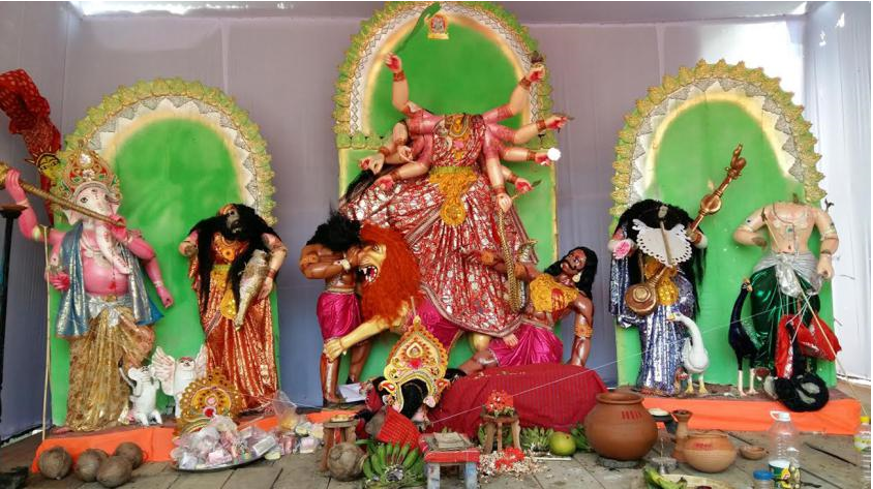
Professor Dwijen Bhattacharjya teaches Bengali Language and Literature at Columbia University in New York City. He is an expert in minority rights in Bangladesh and parallels the decreasing minority populations with the rise of Islamist conservatism and Hefazat-e-Islam.
“Are they persecuting the Hindus? Yes. Are they persecuting the Christians and Buddhists? Absolutely. Are they also persecuting the bloggers, who are atheist? Yes. Are they persecuting the Sunni Muslims who are liberal? Absolutely,” he said, “They also have to flee the country.”
“The original constitution was written in 1972. According to that constitution, Bangladesh’s original constitution, Bangladesh was a secular democratic state. [President Hussain Muhammad Ershad] declared Islam as the state religion in order to appease the Islamists who, in 1971, collaborated with the Pakistani army in conducting genocide against the Bengalis, in which three million people were slaughtered,” Professor Bhattacharjya said. “Three million unarmed people were slaughtered, 200,000 women violated, and nearly ten million Hindus, Buddhists, Christians, and progressive Muslims were forced to leave the country in the face of atrocities”
As Muslims faced persecution in neighboring India before and after the destruction of Babri Mosque, Hindus in Bangladesh bore the brunt of attacks as a consequence. “Often, if you’re a minority, you get called malaun or dandaya, depending on what area of the country you are,” he said, “We grew up with this; this is normal. That’s the way we were called. You see the sarcasm there, or the sadness or the whatever way you want to see it.” Dandaya and malaun are derogatory terms used to refer to Hindus.
Legislative Solutions
What can be done by the Bangladeshi government to reverse the effects of persecution and prejudice towards Hindus and other minorities?
“What do you think America needs to do in order to give the Blacks and Hispanics and the brown people like us equal rights?,” Professor Bhattacharjya countered, “There has to be a multi-level approach.” He suggests that Bangladesh revive the original constitution, one which separated the State from religion. The second step towards minority justice calls for judiciary justice. “Every single case of minority persecution, that persecutor has to be prosecuted and punished, and compensation given to those victims, people who have lost their people, who have lost their property.”
Until violence against Hindus and persecuted minority groups are recognized and declared a national priority, Bengali Hindus will continue to be ostracized, attacked, and ultimately eradicated from Bangladesh.
* Names have been omitted to protect the location of a source.
Read More
The Legacy of Boi Mela
Every year in February, the month-long national book fair welcomes...
Read MoreMillennial Amma: How to Explain a Global Crisis As a Parent
Rumki Chowdhury shares tips for how to talk to children...
Read MoreBegum Rokeya’s Millennials
A tribute to a pioneering Bengali feminist writer, educator and...
Read More